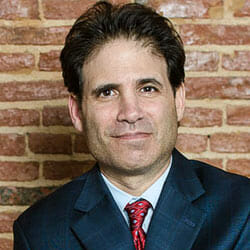Drinking at a Bar? Don’t Drive Your Car
Every day in America, another 30 people die as a result of drunk driving crashes, according to the Centers for Disease Control and Prevention. You do the math: That adds up to one death every 51 minutes, or more than 10,000 fatalities a year. And that’s not just “somewhere” in America . . . that’s in your own state, in your own city. Almost one-third (31 percent) of all traffic-related deaths are caused by alcohol. Of those who died, nearly one-fifth—17 percent—were children aged 14 or younger. The annual cost of all this destruction totals more than $59 billion.
In Maryland in 2012, there were 189 automobile crash fatalities, or 37 percent, that were alcohol-related. For neighboring District of Columbia, the figure is around 32 percent.
Nationwide, it is the drivers between the ages of 21 and 34 who cause nearly two-thirds of all alcohol-related deaths. Fatal crashes are four times more likely at night and more likely on the weekends instead of weekdays. Here is a map of the Best and Worst States for Drunk Driving
Clearly, alcohol use is not just a problem for the people who drink and drive, or for their families and loved ones. It endangers every person who travels on our roads and highways. There is simply no excuse to drive under the influence, and we at the Steven H. Heisler Law Firm have zero tolerance for it.
How Alcohol Affects the Driver
Alcohol is a central nervous system depressant, slowing down your brain’s and body’s abilities to react. Driving under the influence can make you feel sleepy, unable to concentrate, unable to do more than one task at a time (such as the multiple tasks of driving in your own lane at the correct speed while watching surrounding traffic), and can impair your vision. Even at a 0.02 blood alcohol concentration (BAC), much lower than the 0.08 BAC level needed to be judged legally drunk, most drivers experience a decline in their ability to function and react while behind the wheel. Even a hangover the next day can make you feel drowsy and unable to concentrate on the road around you.
Obviously, the safest thing to do is not to drink at all when you drive, or to have a designated driver lined up in advance. It’s also a good idea to have a backup plan for how you will get home, or where you can safely stay, if you plan to drink.
New Technology That Prevents Repeat Offenses of Drunk Driving
Repeat offender drunk drivers can be curtailed by the use of ignition interlock devices (IIDs). An IID is an in-car Breathalyzer that prevents anyone who is under the influence from driving, requiring a breath sample that must be below a pre-set breath alcohol concentration (BrAC) limit. If the breath sample is above the pre-set BrAC limit, the vehicle will not start.
When IIDs are used, repeat offenses of drunk driving show a 67 percent reduction. IIDs can allow those convicted of DUI offenses to “get their act together” and lead productive lives after the conviction, enabling them to drive legally and safely as long as they avoid drinking and driving.
In Maryland, the ignition interlock law was changed in 2014 to require anyone with a child passenger and convicted of drunk driving to have an IID placed in their vehicle. There has been a movement to expand the use of IIDs for all convicted drunk drivers. States that have required IIDs in all cases have seen dramatic declines in drunk driving deaths: 45 percent in Arizona, 35 percent in West Virginia, and 30 percent in Oregon, just to name a few.
If You Should Happen to Be in an Alcohol-Caused Crash
If you are involved in an accident caused by a drunk driver, you may be entitled to compensatory damages and even, in rare cases, punitive damages. Compensatory damages cover things such as medical bills, loss of earnings, damage to your car and other property, loss of consortium, and pain and suffering.
Punitive damages are intended to punish the wrongdoer. In a Maryland drunk driving case, a victim has to establish that the defendant’s actions were conscious and deliberate and evolved from an evil motive or intent to injure. The law in Washington, DC, is somewhat different, allowing punitive damages if the wrongdoer’s actions are accompanied by a wanton and willful disregard to the rights of others or are malicious. Steve Heisler’s experience in both venues will enable him to assess whether punitive damages are an option in your case.
Typical Drunk Driving Lawsuit Defendants
Usually, the driver of the other vehicle is the first potential party to be investigated. The Law Offices of Steven H. Heisler will obtain the evidence taken at the scene by law enforcement personnel, including blood alcohol content (BAC), Breathalyzer test results, and witness statements. In some cases, the driver’s employer may share liability. There may be other appropriate sources of compensation as well, such as a restaurant or bar which served someone who was intoxicated. Maryland does not have a dram shop liability law, but the District of Columbia and many other states do. Steve Heisler will look for all avenues of compensation for you and your family.
Why call Steven Heisler, “The Injury Lawyer”?
If you or a family member has been the victim of a car crash caused by a drunk driver, call Baltimore and D.C. DUI accident attorney Steve Heisler. Keep in mind, however, that there is a statute of limitations, meaning a time limit, for filing personal injury claims, so don’t delay – call (410) 625-4878 today. Or, if you prefer, use our online contact form. The initial consultation is always free when you turn to Steven H. Heisler for legal help.

Attorney Steve Heisler
Steve Heisler decided in 1996 that he was going to focus his law practice exclusively on injury cases. Since then, he has been representing injured people against insurance companies, disreputable medical practitioners and Big Pharma, and doing it with compassion, honesty and level-headed rationality. [ Attorney Bio ]


